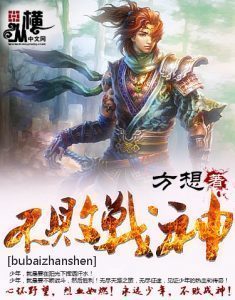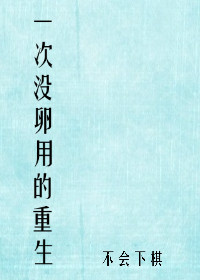Novel Name : The World Online
The World Online 1236 TWO Chapter 1236-Mongol West conquering
Chapter 1236 – Mongol West Conquering
The dynasties on the mid plains could plant grain, while the Mongol Empire could only rely on the heavens.
During the winter that had just ended, hunger had spread through the entire Mongol grasslands. Tens of millions of cows and sheep had died, herders were at their limits, and if their lives did not get any better, a huge crisis was bound to happen.
The so-called getting better referred to pillaging and robbing once more.
Last year, when the Empire attacked West Xia and returned with their faces full of dust, they realized how strong Great Xia was; it should not be easily infuriated.
Hence, the Empire was ready to turn its attention to the west.
On the west side, connected to the house of Ogedai was the Persian Empire.
The Mongols were not unfamiliar with them at all. In history, the Golden Horde and Ilkhanate shared the Persian empire territory.
Hence, the Mongol Empire conquering the west was just repeating what they did in history.
3rd month, 15th day, using the motto of 'reclaiming their past land', 600 thousand Mongol iron cavalry stepped onto the path to the west. They were going to leave a bright page in Chinese history.
Although the current Persian Empire could not be spoken of in the same vein as the one in history with its strong army and vast territory now, Genghis Khan was still really confident about taking a huge bite out of the Persian Empire.
The battle between the two empires was about to get underway.
...
3rd month, 18th day, Imperial capital.
After receiving news of the Mongol's west advancement, Ouyang Shuo was still a little surprised.
Based on the intel gathered by the Black Snake Guards, the Persian Empire in the game had a huge amount of land that included the entire middle Asia, half of west Asia, and Pakistan in South Asia, spanning three Asia regions.
If one did not consider overseas territories, Great Xia's current size was similar to that. Just that alone could show how strong the Persian Empire was.
The entire Central Asia region included Turkmenistan, Uzbekistan, Kyrgyzstan, Tajikistan, and Kazakhstan.
As for the northern region of Kazakhstan, it was occupied by the Romanov Dynasty.
The West Asia region included Afghanistan , Iran, Turkey, Cyprus, Syria, Lebanon, Pakistan, Jordan, Iraq, Kuwait, Yemen, Saudi Arabia, Oman, UAE, Qatar and Bahrain, 16 countries.
Apart from Afghanistan and Iran, which belonged to Persian Empire, the remaining 14 belonged to the Arab Empire.
Be it the Persian Empire or the Arab Empire, their birth was not because one Overlord swept everyone and expanded through wiping out other countries. It was more of a country alliance.
Hence, during the process of empire building, there were very few countries that were wiped out, and 90% and above of the players were kept. The imperial city guards also smoothly turned into the empire army.
They were connected by religion and culture, so they merged together with much ease.
Be it the Persian Empire or the Arab Empire, they both ran a City-State system similar to Ancient Greece, which supported autonomy at a city level while supporting the empire.
The Arab Empire had 20 million players and 2.7 million troops. The Persian Empire was even more terrifying with 30 million players and close to four million troops.
If it were not that the Persian Empire running a City-State system, Genghis Khan would not have even dared to attack Persia.
Due to the global situation worsening, global wars could breakout at any moment. The two empires were merging together internally to try to create a more perfect dynasty.
If not, they would definitely be eliminated in the future or become cannon fodder.
Ouyang Shuo deduced that along with the Mongol west expedition, with the help of outside forces, the Persian Empire would quicken the pace of their internal merger to complete it before the Arab Empire.
The Mongol Empire had no choice but to launch their attack to survive, and as such, their internal defenses would be weak. Logically speaking, this would be the best time for Great Xia to attack them. After all, they did not need to consider breaking the spring sowing.
There were already generals who submitted memorials suggesting that they attack Mongol.
For example, Phoenix legion corps marshal Guo Ziyi who defended Liaojin Province requested to attack while the Mongol army was weak at the border.
Even if they did not totally wipe out the Mongol Empire, they could weaken the enemy.
Ouyang Shuo had been paying attention to this strong opponent, as they were the biggest obstacle to his unification of China. Although that was the case, Ouyang Shuo resisted this huge temptation.
No matter what, the Mongol Empire was a part of China. Taking advantage of them would spoil Great Xia's image, and it would be far too short-sighted.
Be it the Mongol Empire or the Persian Empire, they were all strong opponents of Great Xia. For them to go head to head and wear each other down was great for Great Xia, who was just a spectator.
Ouyang Shuo had no reason to interfere.
If Great Xia declared war against the Mongol Empire now, it would only make them give up on their west conquering mission. In the end, the biggest victor would only be the Persian Empire.
Moreover, if they failed their west conquering mission, they would be forced into desperation. Only by attacking the mid plains could they have a chance of surviving.
A pack of grassland wolves without a way out was really terrifying.
That would be detrimental to both parties.
Due to that, Ouyang Shuo decided to sit on the fence and watch until the outcome of this battle became clear.
Although that was the case, this created a chance for Great Xia.
The Mongols attacking the west meant that they were giving up on attacking Tibet, which gave Great Xia a chance to take them down.
On one side, the Mongols attacking the west lessened Great Xia's defensive pressure in the north; on the other side, if Great Xia attacked Tibet now, there was no way the Mongols could interfere.
Furthermore, Tibet was like Mongol Empire and mainly had herders with farming as their secondary source. Attacking now would not affect the spring sowing, and they had nothing to worry about.
All things considered, this matter created a great chance for Great Xia to attack Tibet.
After West Xia submitted, the Tibet Dynasty had been on the fence, not willing to bow its head to the Mongol Empire or Great Xia. It wanted to balance between the two sides and choose what was better.
This made Ouyang Shuo really unhappy.
Seeing that the balance was broken, he would like to see what tricks the Tibet Dynasty could play.
Thinking about this, Ouyang Shuo did not hesitate any longer and ordered the northwest warzone to attack. Li Jing would personally lead the Bear legion corps to conquer Tibet and Li Mu would lead the Eagle legion corps to defend and prepare to help out.
The Tibet Dynasty only had 400 thousand troops and were not a match for the Bear legion corps. It could only rely on the high plains geography to create problems.
However, that was not much to Great Xia.
In history, Li Jing had once led troops to attack the Tuyuhun and had had a similar experience. Furthermore, he had spent close to two years in the Shu Lands and knew the Tibet Dynasty situation inside out.
To attack at this moment was perfect timing.
The dynasties on the mid plains could plant grain, while the Mongol Empire could only rely on the heavens.
During the winter that had just ended, hunger had spread through the entire Mongol grasslands. Tens of millions of cows and sheep had died, herders were at their limits, and if their lives did not get any better, a huge crisis was bound to happen.
The so-called getting better referred to pillaging and robbing once more.
Last year, when the Empire attacked West Xia and returned with their faces full of dust, they realized how strong Great Xia was; it should not be easily infuriated.
Hence, the Empire was ready to turn its attention to the west.
On the west side, connected to the house of Ogedai was the Persian Empire.
The Mongols were not unfamiliar with them at all. In history, the Golden Horde and Ilkhanate shared the Persian empire territory.
Hence, the Mongol Empire conquering the west was just repeating what they did in history.
3rd month, 15th day, using the motto of 'reclaiming their past land', 600 thousand Mongol iron cavalry stepped onto the path to the west. They were going to leave a bright page in Chinese history.
Although the current Persian Empire could not be spoken of in the same vein as the one in history with its strong army and vast territory now, Genghis Khan was still really confident about taking a huge bite out of the Persian Empire.
The battle between the two empires was about to get underway.
...
3rd month, 18th day, Imperial capital.
After receiving news of the Mongol's west advancement, Ouyang Shuo was still a little surprised.
Based on the intel gathered by the Black Snake Guards, the Persian Empire in the game had a huge amount of land that included the entire middle Asia, half of west Asia, and Pakistan in South Asia, spanning three Asia regions.
If one did not consider overseas territories, Great Xia's current size was similar to that. Just that alone could show how strong the Persian Empire was.
The entire Central Asia region included Turkmenistan, Uzbekistan, Kyrgyzstan, Tajikistan, and Kazakhstan.
As for the northern region of Kazakhstan, it was occupied by the Romanov Dynasty.
The West Asia region included Afghanistan , Iran, Turkey, Cyprus, Syria, Lebanon, Pakistan, Jordan, Iraq, Kuwait, Yemen, Saudi Arabia, Oman, UAE, Qatar and Bahrain, 16 countries.
Apart from Afghanistan and Iran, which belonged to Persian Empire, the remaining 14 belonged to the Arab Empire.
Be it the Persian Empire or the Arab Empire, their birth was not because one Overlord swept everyone and expanded through wiping out other countries. It was more of a country alliance.
Hence, during the process of empire building, there were very few countries that were wiped out, and 90% and above of the players were kept. The imperial city guards also smoothly turned into the empire army.
They were connected by religion and culture, so they merged together with much ease.
Be it the Persian Empire or the Arab Empire, they both ran a City-State system similar to Ancient Greece, which supported autonomy at a city level while supporting the empire.
The Arab Empire had 20 million players and 2.7 million troops. The Persian Empire was even more terrifying with 30 million players and close to four million troops.
If it were not that the Persian Empire running a City-State system, Genghis Khan would not have even dared to attack Persia.
Due to the global situation worsening, global wars could breakout at any moment. The two empires were merging together internally to try to create a more perfect dynasty.
If not, they would definitely be eliminated in the future or become cannon fodder.
Ouyang Shuo deduced that along with the Mongol west expedition, with the help of outside forces, the Persian Empire would quicken the pace of their internal merger to complete it before the Arab Empire.
The Mongol Empire had no choice but to launch their attack to survive, and as such, their internal defenses would be weak. Logically speaking, this would be the best time for Great Xia to attack them. After all, they did not need to consider breaking the spring sowing.
There were already generals who submitted memorials suggesting that they attack Mongol.
For example, Phoenix legion corps marshal Guo Ziyi who defended Liaojin Province requested to attack while the Mongol army was weak at the border.
Even if they did not totally wipe out the Mongol Empire, they could weaken the enemy.
Ouyang Shuo had been paying attention to this strong opponent, as they were the biggest obstacle to his unification of China. Although that was the case, Ouyang Shuo resisted this huge temptation.
No matter what, the Mongol Empire was a part of China. Taking advantage of them would spoil Great Xia's image, and it would be far too short-sighted.
Be it the Mongol Empire or the Persian Empire, they were all strong opponents of Great Xia. For them to go head to head and wear each other down was great for Great Xia, who was just a spectator.
Ouyang Shuo had no reason to interfere.
If Great Xia declared war against the Mongol Empire now, it would only make them give up on their west conquering mission. In the end, the biggest victor would only be the Persian Empire.
Moreover, if they failed their west conquering mission, they would be forced into desperation. Only by attacking the mid plains could they have a chance of surviving.
A pack of grassland wolves without a way out was really terrifying.
That would be detrimental to both parties.
Due to that, Ouyang Shuo decided to sit on the fence and watch until the outcome of this battle became clear.
Although that was the case, this created a chance for Great Xia.
The Mongols attacking the west meant that they were giving up on attacking Tibet, which gave Great Xia a chance to take them down.
On one side, the Mongols attacking the west lessened Great Xia's defensive pressure in the north; on the other side, if Great Xia attacked Tibet now, there was no way the Mongols could interfere.
Furthermore, Tibet was like Mongol Empire and mainly had herders with farming as their secondary source. Attacking now would not affect the spring sowing, and they had nothing to worry about.
All things considered, this matter created a great chance for Great Xia to attack Tibet.
After West Xia submitted, the Tibet Dynasty had been on the fence, not willing to bow its head to the Mongol Empire or Great Xia. It wanted to balance between the two sides and choose what was better.
This made Ouyang Shuo really unhappy.
Seeing that the balance was broken, he would like to see what tricks the Tibet Dynasty could play.
Thinking about this, Ouyang Shuo did not hesitate any longer and ordered the northwest warzone to attack. Li Jing would personally lead the Bear legion corps to conquer Tibet and Li Mu would lead the Eagle legion corps to defend and prepare to help out.
The Tibet Dynasty only had 400 thousand troops and were not a match for the Bear legion corps. It could only rely on the high plains geography to create problems.
However, that was not much to Great Xia.
In history, Li Jing had once led troops to attack the Tuyuhun and had had a similar experience. Furthermore, he had spent close to two years in the Shu Lands and knew the Tibet Dynasty situation inside out.
To attack at this moment was perfect timing.
Rankings

To Cure the Playboy
Hailey Allen
Read To Cure the Playboy by Hailey Allen. Genre: Chinese novels. Read the full novel online for free hereRecovering from
Love Has its Will by Selena Lewis
Selena Lewis
Read Love Has its Will by Selena Lewis by Selena Lewis. Genre: Chinese novels. Read the full novel online for free hereT
World Teacher – Other World Style Education & Agent
Neko Kouichi
A man who was once called the world strongest agent ended up becoming a teacher after his retirement to train the new ge
Undefeated God of War
方想
Youth, is meant to be used to shed sweat under the sun!Youth, is to continuously engage in battles, and secure the win!
My Entire Class Was Summoned to Another World except for Me
サザンテラス
A god of a different world had abruptly appeared in my classroom and semi-forcibly summoned the entire class to his worl
I Stayed At Home For A Century, When I Emerged I Was Invincible
Halfway Breeze
Chu Xuan transmigrated to a fantasy world and became the young master of a powerful family. He was rebuked for misbehavi
I'm the King Of Technology
Lumydee
Chu Yi dies in a car crash and becomes Landon Barn, the illegitimate son of king Barn, ruler of Arcadina. Because his mo
Kiss Me Goodnight, Mrs. CEO!
黛蜜儿
In the middle of the night, looking at the woman in his embrace, he smiled devilishly, “With your discontentment, do y
A Man Like None Other
Unknown
Read A Man Like None Other by . Genre: Chinese novels. Read the full novel online for free here.Jared Chance seethes wit
One Useless Rebirth
不会下棋
He Bai won the lottery, became rich, and reached the pinnacle of life. Then, he inadvertently took a picture of the Film